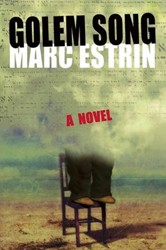Baal teshuva, translated literally as one who has returned or repented, is the central theme of Diana Spechler’s novel, Who By Fire. After thirteen years of blaming himself for the disappearance of Alena, his baby sister, Ash has found a way to repent. Leaving UC Boulder in 2002 during the second Intifada, he moves to Jerusalem to bury his guilt and grief in learning and mitzvot at an Orthodox yeshiva. His older sister Bits and his mother Ellie are also dealing with their residual grief and see Ash’s return as the way in which to heal their own pain.
After Alena’s remains are remarkably recovered, self-loathing nymphomaniac Bits scrapes and steals enough money to fly to Israel to return Ash to reality and his past: Alena’s funeral. In the meantime, neurotic guilt-dispensing Ellie seeks solace in a new relationship with a cult interventionist who, of course, has his own bizarre and twisted past.
While the book takes the reader into an unknown world of secular Jews becoming religious, it tacitly suggests that a troubled family life and screwed up siblings might be the impetus for returning to the faith. And that seems far too simplistic. Also, the mother’s cult-breaking boyfriend and another cult related character who befriends Ash in Israel only furthers the idea held by many Reform and Conservative Jews that our more frum religious brothers and sisters are trapped in a “cult” of Judaism.
The most tragic part of this novel, in this reviewer’s opinion, is that the women in the book remain self-hating throughout and rely upon men (lovers, husbands, brothers) to find happiness whereas the brother Ash finds peace of mind and an appreciation of self through Hashem.





